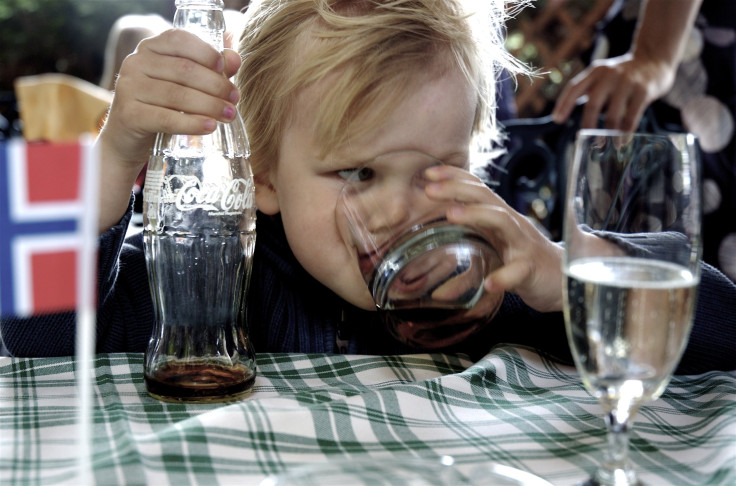Good Cholesterol Increases When Kids Consume Fewer Sugary Drinks, Lowering Heart Disease Risk Early On

Cutting back on sugar-sweetened beverages (SSBs) by just one serving can improve a child’s heart health and lower their risk for disease later in life, according to new research published in The Journal of Nutrition. Researchers from Tufts University studied the effects of drinking fewer sugary beverages on children’s “good” cholesterol levels and found that drinking just one less SSB a week was beneficial to their health.
For the study, researchers looked at the cholesterol levels of 613 children between the ages of 8 and 15 for one year. Each child reported how many sugary beverages they drank each week. Most of them were minorities from low-income households, and nearly half were either overweight or obese.
Approximately 85 percent of the children said they drank a sugary beverage in the past week, while 18 percent said they consumed at least seven sugary beverages each week. The older kids, who were going through puberty or post-puberty, drank more sugary beverages than the younger kids, but there was no difference in consumption between ethnicities.
"We sought to better understand the relationship between lipid levels and SSB consumption in a population of schoolchildren in which health disparities were likely, and where future interventions could help improve diet quality and disease risk," said the study’s co-author Maria Van Rompay, a professor at the Friedman School of Nutrition Science and Policy at Tufts University, in a press release.
Van Rompay warned that when children have high triglycerides, low HDL (“good”) cholesterol, insulin resistance, and obesity, they’re at a higher risk of developing heart disease later in life. Triglycerides are a type of fat used to store excess calories from a person’s diet, and often arise from being overweight, obese, or physically inactive, among other factors, according to the American Heart Association . The more sugary beverages the children reported drinking, the higher their triglyceride levels were. After they drank just one less 12-ounce serving of SSBs, however, the researchers watched their good cholesterol levels increase.
Cholesterol is a type of fat found in blood. However, it needs lipoproteins to dissolve into the blood, which is where low-density lipoprotein (LDL) and high-density lipoprotein (HDL) come in, but one is worse than the other. LDL cholesterol is considered the “bad” cholesterol because it contributes to a thick, hard artery-clogging plaque that makes it difficult for the heart to pump blood. When these clots form, risk of heart attack or stroke rises.
HDL cholesterol is “good” cholesterol because it cleans these buildups of plaque in the arteries by carrying LDL cholesterol down to the liver, where it’s processed as waste. A healthy amount of HDL cholesterol may help protect against heart attack and stroke. When Van Rompay and her colleagues observed children’s HDL cholesterol levels increase by drinking just one less serving of SSBs each week over the course of a year, her team provided another reason for kids to cut back.
The study’s lead author Jennifer Sacheck, a professor at the Friedman School of Nutrition Science and Policy, added: "Importantly, not only are most SSBs high in sugar and devoid of nutritional value, but they are displacing other foods and beverages that offer high nutritional quality, which are critical for children's growth and development, further exacerbating the potential harmful health effects of SSBs."
Source: Sachek J, Van Rompay M, McKeown NM, et al. Sugar-sweetened beverage intake is positively associated with baseline triglyceride concentrations, and changes in intake are inversely associated with HDL cholesterol increases over 12 months in a multi-ethnic sample of children. The Journal of Nutrition. 2015.



























